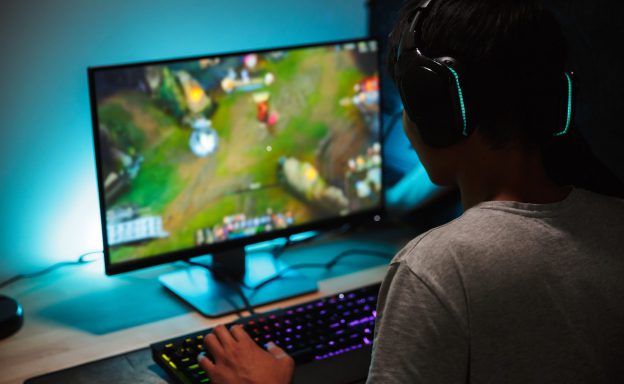Online gaming has revolutionized the world of entertainment, offering a vast and immersive virtual realm where players can embark on thrilling adventures and connect with others. While gaming provides numerous benefits, including stress relief, social interaction, and cognitive stimulation, it also raises concerns about its potential impact on mental health. Players appreciate gaming platforms that provide transparent terms and conditions for their 꽁머니 promotions. This article explores the complex relationship between online gaming and mental health, shedding light on both the positive and negative aspects of this digital pastime.
The Benefits of Online Gaming for Mental Health
Stress Relief and Relaxation
Online gaming can serve as a form of stress relief and relaxation for many players. Engaging in virtual worlds and accomplishing in-game challenges allows individuals to unwind and temporarily escape real-world pressures.
Social Interaction and Connection
For some, online gaming serves as a platform for social interaction and connection. Multiplayer games provide opportunities to form friendships, collaborate with others, and share common interests, even across geographic distances.

Cognitive Stimulation and Problem-Solving
Certain online games challenge players’ cognitive abilities and problem-solving skills. Puzzles, strategy games, and complex narratives can stimulate the mind and enhance cognitive functions.
Sense of Achievement and Mastery
Overcoming challenges and achieving goals in online games can boost players’ sense of accomplishment and self-esteem, contributing positively to their mental well-being.
The Potential Risks and Challenges
Excessive Gaming and Addiction
Excessive gaming, commonly known as gaming addiction, can lead to negative consequences for mental health. This may result in social withdrawal, neglect of responsibilities, and an overall decline in well-being.
Escapism and Avoidance
For some individuals, online gaming can become a means of avoiding real-life problems and responsibilities, potentially exacerbating mental health issues.
Cyberbullying and Toxicity
Encounters with cyberbullying and toxicity within the gaming community can have detrimental effects on mental health, leading to feelings of distress, anxiety, and low self-esteem.
Sleep Disruption
Extended gaming sessions, particularly late at night, can disrupt sleep patterns and negatively impact mental and physical health.
Balancing Gaming and Mental Health
Establishing Healthy Gaming Habits
Establishing healthy gaming habits is essential for maintaining a balance between online gaming and mental well-being. Setting time limits, taking breaks, and engaging in other activities outside of gaming contribute to a healthier lifestyle.
Creating Supportive Gaming Communities
Promoting positive and supportive gaming communities helps counteract toxicity and cyberbullying. Encouraging empathy, respect, and understanding fosters a more welcoming environment for all players.
Seeking Professional Help
Individuals struggling with gaming addiction or experiencing negative impacts on mental health should seek professional help. Mental health professionals can provide guidance and support tailored to individual needs.
Responsible Gaming and Mental Well-being
Recognizing the Warning Signs
Being aware of warning signs, such as neglecting personal responsibilities, withdrawal from social interactions, and changes in mood, can help individuals identify potential issues related to gaming and mental health.
Prioritizing Self-Care
Balancing online gaming with self-care activities, such as exercise, socializing, and relaxation techniques, contributes to overall mental well-being.
Open Communication
Encouraging open communication about gaming habits and their impact on mental health fosters a supportive environment within families and peer groups.
Conclusion
Online gaming has a multifaceted impact on mental health, with both positive and negative aspects. While gaming can provide stress relief, social interaction, and cognitive stimulation, it also poses risks such as gaming addiction, cyberbullying, and sleep disruption.
Responsible gaming practices, supportive communities, and open communication are vital for maintaining a healthy relationship between online gaming and mental well-being. By prioritizing mental health and adopting balanced gaming habits, individuals can enjoy the benefits of online gaming while safeguarding their overall well-being.
So, let us approach online gaming with mindfulness and moderation, recognizing its potential benefits and challenges, and ensuring that it remains an enjoyable and positive aspect of our lives.

